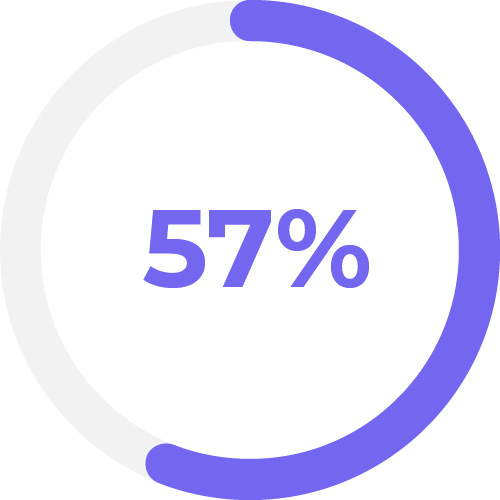Is your next hire AI-enhanced? A recruiter’s guide to spotting authentic talent
February 15, 2025 | Article

Percent of job seekers that have utilised ChatGPT to assist with their applications.
Navigating the surge of AI-powered job applications
Artificial intelligence is taking centre stage in the recruitment landscape, making a tangible impact on both applicants and employers alike.
While AI tools like ChatGPT can save time and help candidates polish their language, they also raise concerns for hiring teams: if a CV or cover letter looks too perfect, how do you know if it’s backed by real competence? And if candidates rehearse AI-generated responses to interview questions, how can recruiters delve into authentic experience rather than rehearsed replies?
Striking the balance between efficiency and honesty is crucial. Below, we explore how jobseekers harness AI to get noticed and the steps employers can take to ensure fair, unbiased, and truly insightful assessments.
How candidates are leveraging AI tools
AI has revolutionised the way candidates approach their job searches. Instead of painstakingly crafting every line, many turn to AI to refine phrasing, enhance structure, and highlight in-demand skills. Some of the most prevalent uses include:
- Keyword targeting: AI can analyse job descriptions to highlight which keywords and phrases appear most frequently. By integrating these words strategically into a CV, it may score higher with automated systems that filter applications based on specific terms.
- Structured formatting: Automated assistance organises job histories and skill sections into concise, reader-friendly layouts.
- Skills-matching insights: Advanced AI platforms can suggest skills or competencies that commonly appear with certain roles. This helps candidates fill any gaps in their CV and makes them appear better-aligned with recruiters’ standard criteria.
- Content personalisation: AI-driven solutions can help tailor each application to the specific role and company. Beyond keywords, they can suggest role-relevant achievements, highlight certain experiences more prominently and recommend variations in tone.
- Automated proofreading and clarity checks: Grammar and punctuation errors, or unclear phrasing, can cause ATS or recruiters to discard an application. AI writing assistants refine content for clarity, correctness and style helping candidates to appear polished and professional.
- ATS-friendly formatting: Many applicant tracking tools struggle with unconventional layouts or special characters. AI can transform a CV into a format that’s easier for ATS to parse, typically with simple fonts, standard headings and clean bullet points.
However, relying excessively on AI can backfire. One survey noted that 29% of job seekers who disclosed their use of ChatGPT were not hired after employers discovered how heavily they leaned on AI (Resume Builder). This reflects a mounting concern: recruiters value personal authenticity and in-depth knowledge, which purely machine-generated content can easily miss.
Spotting AI-driven responses
Though tools like ChatGPT can produce polished, grammatically correct content, it is important to look beyond the surface and assess a candidate’s true fit. Here are four proven approaches:
- Notice language patterns: Whilst increasingly challenging to spot, AI can still use repetitive or overly formal phrasing. Identical templates used across multiple applications can indicate computer-assisted text.
- Probe with follow-up questions – In interviews, drill down into specific details. If a candidate struggles to elaborate on something in their CV, it may have been AI-generated.
- Compare written materials to verbal communication – A stark difference in tone or vocabulary between someone’s written application and their spoken responses can flag AI involvement.
- Seek genuine anecdotes – AI-generated content often lacks personal stories or specific outcomes. Ask for real-world examples, achievements, or lessons learned.
By weaving these strategies into your existing recruitment process, you can maintain a respectful and unbiased stance while still uncovering each candidate’s real abilities, character, and potential culture fit.
Start assessing for free
Refining your recruitment strategy
To keep pace with the rapidly evolving role of AI in job applications, organisations should consider updating role descriptions to reflect what truly matters: proven experience, genuine accomplishments, and core skills that transcend perfectly polished writing. Implement targeted assessments that encourage problem-solving, creativity, and collaboration—qualities that AI-generated text struggles to replicate.
By remaining transparent about AI usage and focusing on deeper indicators of capability, recruiters can harness the benefits of technology without compromising on authenticity. As these tools become even more widespread, being proactive in your approach will ensure you continue to spot and secure the best talent.
